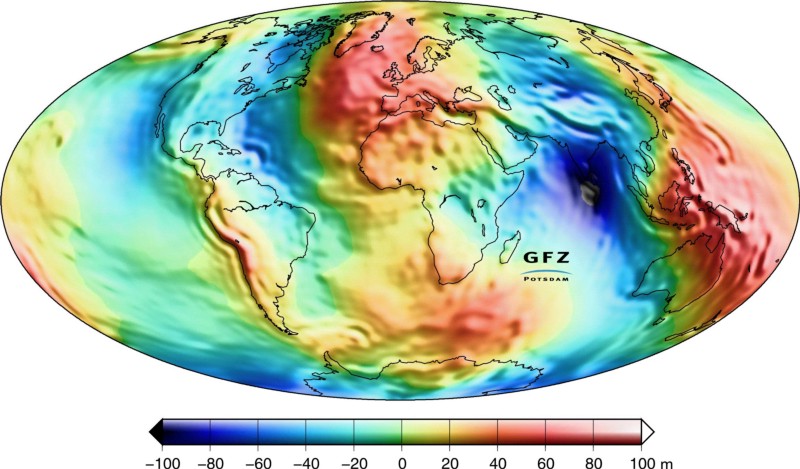Sure, they wiped out the dinosaurs, but do they really pose a risk to humans? “The oldest and strongest emotion of mankind is fear, and the oldest and strongest kind […]
All Articles
Words of wisdom from American poet Walt Whitman: “I think of few heroic actions, which cannot be traced to the artistical impulse. He who does great deeds, does them from his innate sensitiveness to moral beauty.”
It’s possible to grow hamburger in a laboratory. Scientists have done it. It’s actual meat. The problem is the process for creating meat is currently prohibitively expensive, although that may not be the case for long.
People like rewards. Researchers found people are more likely to participate in programs as well as change their behavior if there’s a little money coming their way.
How do corporations that have perpetuated dysfunctional, despicable, and illegal cultures turn those around? Is it even possible?
More than 20 years ago, the sitcom Seinfeld went “meta” and joked that it was “a show about nothing.” But 20 years before George Costanza’s epiphany, artist Richard Tuttle was staging shows about nothing featuring works such as Wire Piece (detail shown above) — a piece of florist wire nailed at either end to a wall marked with a penciled line. But, as Jerry concludes, there’s “something” in that “nothing.” A new retrospective of Tuttle’s art at the Fabric Workshop and Museum in Philadelphia, Both/And: Richard Tuttle Print and Cloth, dives into the depths, and widths, of this difficultly philosophical, yet compellingly simple artist who takes the everyday nothings of line, paper, and cloth to create extraordinary statements about the need to be mindful of the artful world all around us.
Image credit: © 2015 MotorTrend Magazine, via http://www.motortrend.com/roadtests/suvs/1110_mopar_underground_jeep_and_ram_run_wild_at_moab/photo_06.html. How gravity teaches us that the mountains we see extend far underground. “Journalists often ask me when I go to the field, […]
The late-night host’s departure from television is yet another reminder that our media consumption is changing.
Robots have already bested humans in chess and Jeopardy; now, developers are trying to create the next poker master.
A UK hospital hopes the device will help patients manage their medication and track their symptoms.
“In the depth of winter, I found there was, within me, an invincible summer. And that makes me happy. For it says that no matter how hard the world pushes against me, within me, there’s something stronger — something better, pushing right back.”
Common assumptions about the dangers of radiation are excessive. Journalism plays a huge role in creating and feeding these fears.
We don’t need to eat meat, and yet we still do. Researchers sought to find out how people defended their meat-eating habits.
Researchers believe that mothers and fathers complement each other when aiding in their child’s speech development.
Researchers found banning smartphones from the classroom helped raise the worst students’ test scores and bring up the class average.
Singularity University’s Peter Diamandis discusses one way in which virtual reality — a burgeoning exponential technology — will disrupt unexpected sectors of culture and society.
A series of mysterious white features lurk at the bottom of one of its most massive craters. Here’s what they could be, and how we’ll find out! “One of the […]
King coal has been dethroned for decades. Yet he still determines how Brits vote.
Dance classes are low in physical activity, study says, but there’s more to the story.
Ian Mitchell argues that alcohol may make you friendlier, but only to certain people.
What happened when researchers strapped fake WiFi routers to people’s heads to test if electromagnetic sensitivity is real or imagined?
Should ABC hold George Stephanopoulos accountable for undisclosed contributions to Clinton organizations? If he’s a journalist, yes. But is he? The Good Morning America host represents an ill trend in mainstream journalism.
Developers out of New Zealand are working on a system that will mimic angry customers in order to train telemarketers in real conflict management.
How do people living in non-democratic states see their government and enact change? Lily Tsai takes us into how Chinese citizens see their government and give themselves a voice.
Unsurprisingly, researchers have found sadness stays with us the longest, or at least that’s how people tend to remember it.
Worldwide, there is an annual net loss of 11 billion trees. Despite all reforestation efforts, this loss reflects the fact that while deforestation is a mechanized, rapid, and highly efficient process, reforestation, mostly done by hand, is a tiresome, laborious, and highly inefficient one.
In collaboration with Exponential Finance
Whether we’re professional athletes or cellphone gamers, falling just short of our goals can be motivating, not crushing.
Researchers are using music to light up unconscious minds, but the results only bring more questions about its effectiveness for coma patients.
A study suggests that long-term depression can more than double one’s chances of suffering a stroke.


























